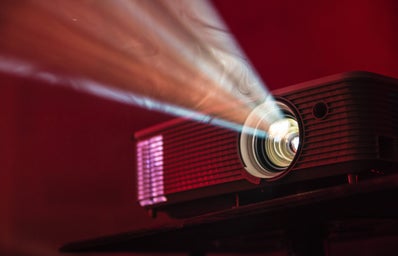Most would not think a film featuring violent crime and raunchy sex jokes embodies a quality example of queerness on screen. However, Margaret Qualley and Geraldine Viswanathan’s performances in Drive-Away Dolls prove otherwise.
The comedy, directed by Ethan Coen and written by Tricia Cooke, casts Qualley and Viswanathan as the main protagonists. The pair act as lesbian friends on a road trip to Florida involving crime, love and a storm of dirty twists. Psychedelic visuals and a surprising Miley Cyrus cameo accompany the queer romance to craft a visually appealing and engaging viewing experience.
Coen is best known for his filmmaking partnership with his brother, Joel; the Coen brothers have directed Fargo and The Big Lebowski. However, Cooke owns up to the film’s flippancy, noting that her filmmaking process with her husband differs vastly from the sibling duo.
“Ethan and Joel make highbrow movies and we make lowbrow movies,” Cooke said in a recent Q&A.
Cooke, who identifies as queer, also noted her desire to represent unapologetic queerness on screen when writing the screenplay. Drive-Away Dolls features a shameless amount of sex scenes and risque references that promote a loudly sex-positive narrative, ultimately destigmatizing queer sex on the big screen.
Beyond its lustful nature, the film offers comically explicit and relatable memories of growing up queer. Viswanathan’s character acts as a Peeping Tom toward a female neighbor in a flashback, and Qualley’s character frequently references past intimate relationships without sparing much detail.
The success of the film primarily comes from its seamless intertwining of a goose-chase-type concept with lesbianism, normalizing sexual and romantic developments of queer relationships. The film acts blind in regard to critical discussions of both race and sexuality. Instead, it merely requires audiences to accept both lesbianism and the racial identities of both characters without question.
Such intentional ignorance is sometimes cited as insensitive. Colorblind casting is often linked to “Bridgerton,” in which actors of color were inserted into the period drama without discussions of their racial identities. Viswanathan, who is of both Indian and Swiss descent, similarly plays a queer biracial character without active comments on her race.
Aside from the problematic nature of avoiding discussions surrounding race, the film ultimately drives home the point that queer love comes in bold and diverse forms.
Drive-Away Dolls may not be 2024’s most memorable movie, but it certainly serves as grounds for extensive laughter and evidence of overt and proud queer representation in Hollywood. Coen and Cooke successfully granted the queer community a lighthearted comedy that casts queer love as nothing more and nothing less than any other romance.


